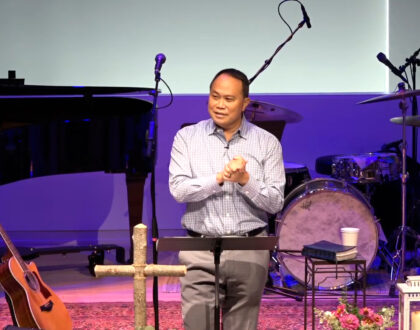Wrestling with Life’s Deep Questions

Socrates famously stated the “the unexamined life is not worth living.” If that is true, how often do we stop to ask, “What is the meaning and purpose of it all? What brings us fulfillment, joy, and happiness?
So many answers are given to these questions: to love and to be loved; to leave the world better than you found it, to serve others; to know God; to create peace; to be present; to live with gratitude; to help others with their pain; to serve and give back; to forgive and hope to be forgiven; to grow in both knowledge and wisdom; to form meaningful friendships; to love God and neighbor.
As we continue to climb out of a global pandemic, questions about meaning seem even more necessary. Grief is still real for many. Whitworth professor Jerry Sittser once said that, “All people suffer loss. Being alive means suffering loss. Living means changing, and change requires that we lose one thing before we gain something else.”
Very few things stay the same. Politics still angers and divides. Morality binds and blinds. Loneliness hurts. In ministry, I often become overwhelmed by the amount of pain and hurt that I see. Illness, cancer, addiction, depression, divorce, grief, resentment, racism, violence, unemployment – it’s all there. Here is a timeless truth – hurting people hurt others. When we don’t deal with our own pain, we then go and hurt others, making it a vicious cycle.
Victor Frankl wrote Man’s Search for Meaning where he says, “We can survive the HOW in life as long as we know the WHY.” Far too many people go through life without ever knowing their WHY.
A second claim is this: even if we lose everything in life, there is one thing that cannot be taken away from us, and that is our ability to choose our attitude in any given circumstance. Frankl understood the importance of attitude and mindset, as did the apostle Paul. Humans consistently turn to the wrong things seeking fulfilment and security. Idols abound. All great religions recognize this. Only life in God and for others can give us meaning. Only deeper connections built on trust will satisfy our longings.
St. Augustine famously said, “Lord you have made us for yourselves, and our heart is restless until it finds its rest in you.” Restlessness and busyness is a problem. We become too busy for our own good. Prayer can make a difference.
Sittser also talks about how the soul can grow through difficult periods: “The soul is elastic, like a balloon. It can grow larger through suffering. Loss can enlarge its capacity for anger, depression, despair, and anguish, all natural and legitimate emotions when we experience loss. Once enlarged, the soul is also capable of experiencing greater joy, peace, strength, and love.”
Which will it be for each of us?
Of course, we will continue to argue over mask mandates and wonder why many chose to not be vaccinated. We will be disappointed when others fail to meet our expectations. Friends come and go and everything changes.
What does a successful, meaningful life entail? Ralph Waldo Emerson responded this way: “To laugh often and much; to win the respect of intelligent people and the affection of children; to earn the appreciation of honest critics and endure the betrayal of false friends; to appreciate the beauty; to find the best in others; to leave the world a bit better, whether by a healthy child, a garden patch or a redeemed social condition; to know even one life has breathed easier because you have lived. This is to have succeeded!”
Recommended Posts

Political Violence is Never the Answer
July 25, 2024

“Messenger” – Justin Gung – July 14
July 14, 2024

Celebrating Woodmont’s 81st Birthday
July 10, 2024

